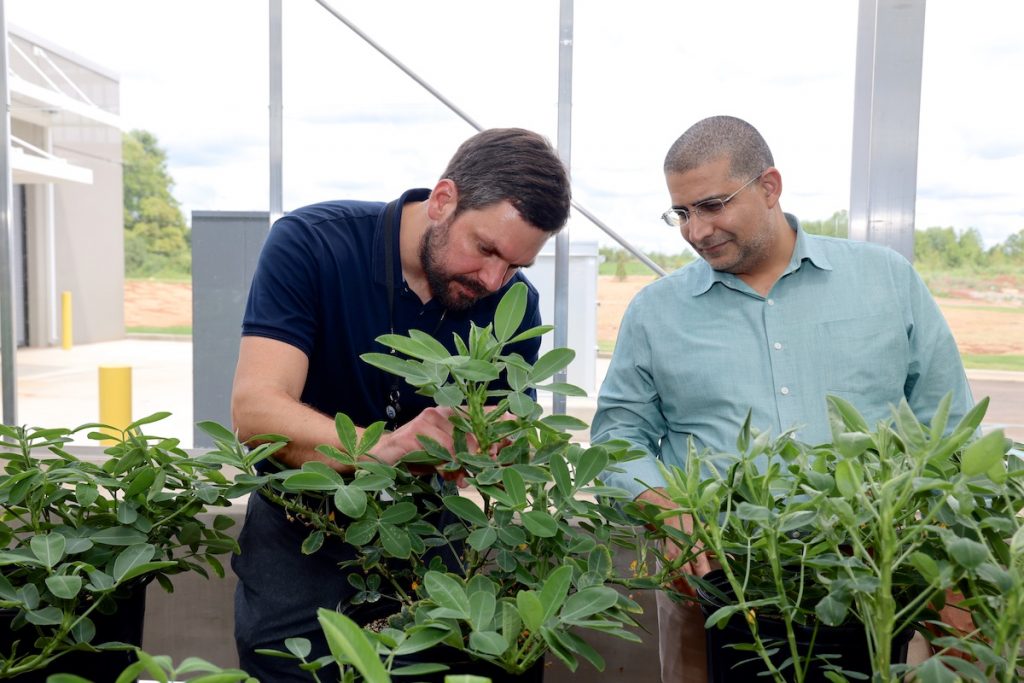By: Sarah Sharman, PhD, Science writer
Since opening its doors in 2008, the HudsonAlpha Institute for Biotechnology has made a huge impact on the state of Alabama. Beginning in its home community of Huntsville, the biotechnology non-profit expanded over the years to reach from north Alabama to coastal Mobile. From educating students, teachers, and the public to making profound discoveries in human and plant genomics to creating thousands of jobs and billions of dollars in revenue for the state of Alabama, the HudsonAlpha model is a proven success.

In 2022, HudsonAlpha announced the expansion of its physical footprint outside of its longtime home in Cummings Research Park in Huntsville, Alabama. Through a partnership with the city of Dothan, HudsonAlpha launched the HudsonAlpha Wiregrass campus that will serve Dothan, Alabama, and the surrounding areas.
Dothan is nestled in the southeast corner of Alabama, about 20 miles west of Georgia and 16 miles north of Florida. It has a long history of peanut farming, earning the nickname “Peanut Capital of the World.” Approximately half of the United States peanut crop is grown, harvested, and processed within 100 miles of Dothan. The city is so proud of its peanut notoriety that they’ve installed more than 60 artistic peanut statues around town.
Although Dothan is a successful peanut hub, pressure from the global spread of plant diseases and pests, dwindling natural resources, and climate change threaten crop production worldwide. As scientists connect genetic variants with beneficial crop traits, more and more breeders are integrating genomic tools into traditional breeding strategies. Genomic-assisted crop breeding is proving successful in creating commodity crop varieties that can withstand pressures in specific regions of the country and the world.

Peanut experts Josh Clevenger, PhD, and Walid Korani, PhD, examining peanut plants in HudsonAlpha’s Kathy L. Chan Greenhouse.
HudsonAlpha’s agricultural researchers are experts at creating diverse ways to apply genomics to solve challenges in modern plant science and agriculture. A major goal of the HudsonAlpha Wiregrass research mission is to use the power of genomics to develop more drought- and disease-resistant varieties of peanuts and other agriculturally important crops to thrive in the Wiregrass region.
Beginning with peanuts, area stakeholders and HudsonAlpha’s Economic Development Team will work together to identify agronomic issues that affect crop growth in the Wiregrass region, including weather, length of planting season, soil types, and pest/disease presence. The data gathered in these discussions will help researchers leading the breeding pipeline to identify traits that would make an agronomically and economically valuable peanut variety for the Wiregrass region.
The genomics-assisted breeding program, led by HudsonAlpha faculty investigator and resident peanut expert Josh Clevenger, PhD, is one of the first commodity crop breeding programs in the world relying solely on whole genome sequencing to identify genetic markers linked to traits of interest. Every plant in the breeding program will have its entire genome sequenced at low coverage and analyzed using the data analysis platform Khufu. The goal is to identify small regions of DNA called quantitative trait loci (QTL) that control the traits of interest. Larger DNA segments close to the QTL can be used as genetic markers to determine if a plant inherited the desired trait.

(L to R) George Jeffcoat, local peanut farmer and community leader, HudsonAlpha President Neil Lamb, PhD, and Dean Mitchell, Director of the HudsonAlpha Wiregrass, at the National Peanut Festival.
Uniquely, the breeding program is community-owned, including local farmers, breeders, and students in almost every step. Students will actively participate in genomics-assisted breeding, growing peanut plants from seedlings, phenotyping plants, analyzing genomic information, selecting plants for future breeding and field trials, and crossing plant varieties. This novel program will allow students to learn cutting-edge techniques while working on a project with immediate, real-world implications.
Selected varieties of peanuts will be grown in field trials at the Auburn University Wiregrass Research and Extension Center. Ultimately, Wiregrass farmers will deploy the new, Wiregrass-specific varieties in their fields.
In addition to providing the Wiregrass region with crops that will grow better and be more successful in the face of environmental challenges, HudsonAlpha Wiregrass is also providing the area’s students, teachers, and public with high-quality educational programming. The programs will showcase the application of genetics and biotechnology in agriculture, human health, and other life sciences and career fields.
HudsonAlpha Wiregrass will strengthen and diversify the area’s economy by growing the life sciences sector, working closely with regional leaders to recruit ag-tech companies, and fostering an ecosystem for entrepreneurs and small businesses.
Media Contact:
Emily Adelman, Communications Specialist
256-937-8210
eadelman@hudsonalpha.org

